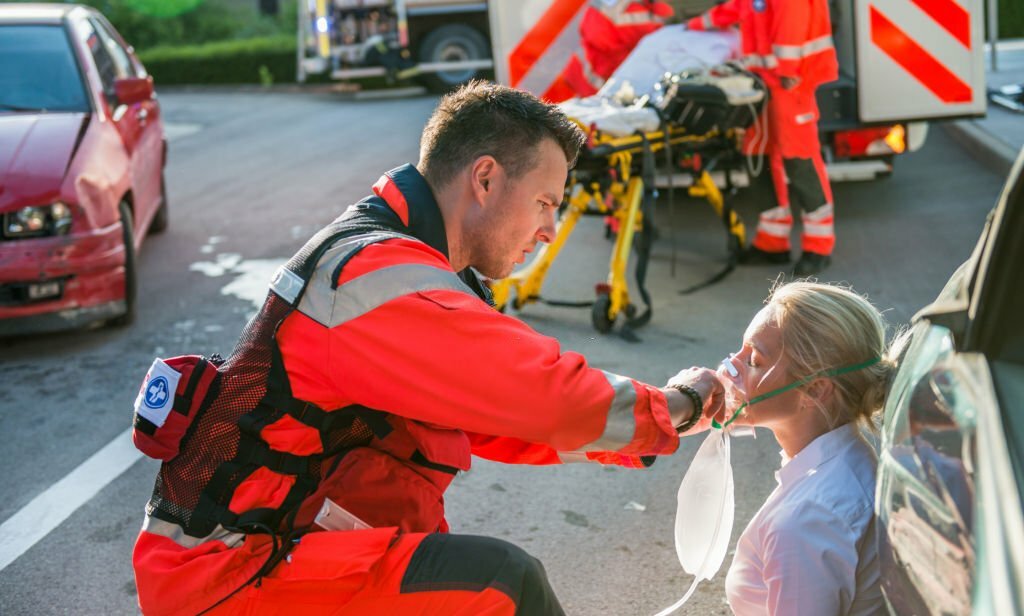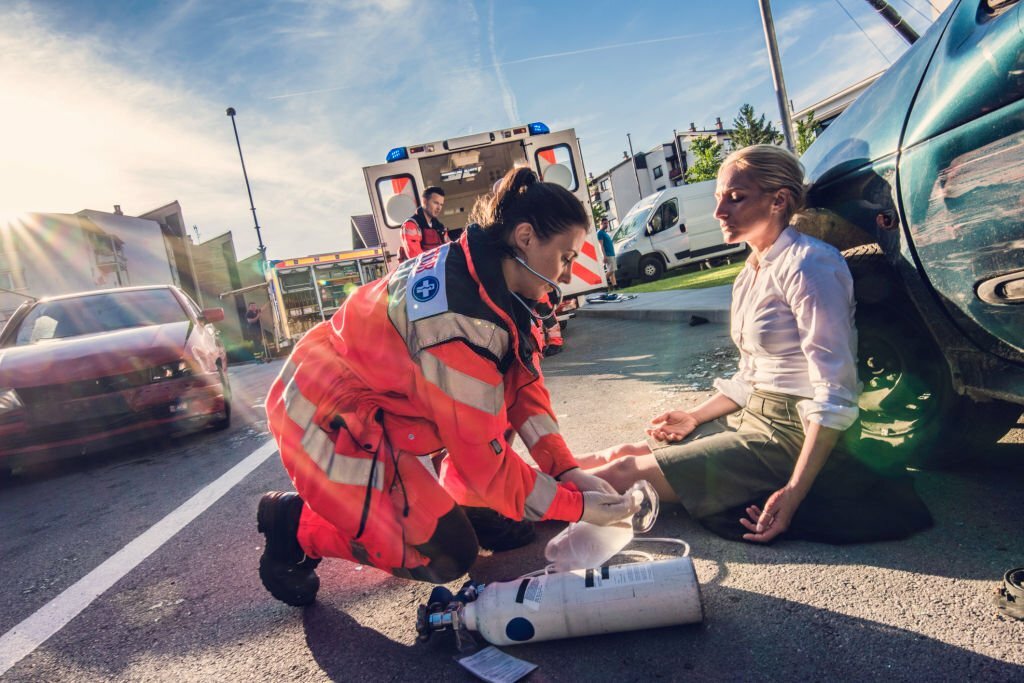Advertisements
When it comes to car work-related injuries, it’s important to understand whether your health insurance will cover medical bills after a settlement. Many people believe that their health insurance would cover all medical expenses resulting from work-related injury but this is not always the case. Certain limitations or exclusions may apply depending on the type of health insurance plan you have.
If you are wounded in a car accident while on the job, your health insurance may initially cover your medical expenses. If you receive a settlement from the other driver’s insurance company, your health insurance provider may request compensation for the medical bills they cover. The right of your health insurance company to get payment for any medical expenses incurred as a result of your accident that are covered by the settlement is known as subrogation.
It is important that the details about health insurance coverage for car work-related injuries following a settlement may differ based on your policy and the actual circumstances of your injury. Having a legal consultation and comprehending the details of your health insurance policy will assist you in determining your rights and obligations when it comes to medical bills resulting from a workplace injury.
Health Insurance Coverage Fundamentals
One kind of insurance that pays for all or part of the expenses of medical care is called health insurance. It is intended to shield people and families from the cost of unforeseen medical bills. It’s important to understand the fundamentals of health insurance coverage because health insurance policies differ greatly in terms of benefits, costs, and coverage.
Advertisements
Health insurance coverage for work-related injuries can be more complicated. In general, work-related injuries are not covered by health insurance policies. Workers’ compensation insurance, which offers payments to employees who are hurt or become ill as a result of their work, is often used to cover these injuries.
However, there are several circumstances in which health insurance may cover work-related injuries. For instance, if an employee settles a workers’ compensation claim and receives a lump sum payment, health insurance may cover medical expenses incurred as a result of the accident following the settlement. To establish what is covered, check the precise terms of the health insurance policy.
Prescription medication, hospital stays, and doctor visits are among the medical expenses that are typically covered by health insurance programs. Preventive care is also covered by certain policies, including yearly physicals and immunizations. Treatment for substance abuse, mental health, and other specialist therapies are also covered by many policies.
Does Health Insurance Cover Car Accidents?
Health Care Fraud Lawyer
Health Insurance and Work-Related Injuries
Workers’ Compensation
Workers’ compensation is a type of insurance that compensates employees who get injured or become ill on the job. It is intended to cover medical bills, lost income, and other costs incurred as a result of work-related accidents. Employers are often required to provide workers’ compensation to their employees.
If an employee gets injured on the job, they should notify their employer promptly and seek medical attention. Following that, the employer will file a claim with their workers’ compensation insurance carrier. If the claim is approved, the employee will be compensated for medical expenses and lost income.
Personal Injury Protection
Personal injury protection (PIP) insurance is a type of car insurance that pays for medical bills and lost income for the driver and passengers in a car accident, regardless of responsibility. Other expenses related to the accident, such as childcare and home services, may be covered by PIP insurance.
If an employee is injured in a car accident on the job, their PIP insurance may pay their medical expenses and lost income. It is crucial to emphasize, however, that PIP insurance is not a replacement for workers’ compensation insurance. Even if the employee’s injury was caused by their job, they should file a workers’ compensation claim to ensure they obtain all of the benefits to which they are entitled.

Post-Settlement Scenarios
After a work-related accident settlement is made, the injured party may ask whether their health insurance would cover any future medical bills linked to the incident. Here are some scenarios to consider:
Post-Settlement
Most health insurance policies will not cover work-related injuries after a settlement. Workers’ compensation is the principal source of coverage for work-related injuries and illnesses, providing comprehensive medical benefits, pay replacement, and vocational rehabilitation. However, the settlement agreement may include provisions for future medical expenses connected to the injury in specific situations. It is important to thoroughly read the provisions of the settlement agreement to discover whether health insurance coverage is included.
Coverage of Future Medical Expenses
If the settlement agreement does not include provisions for future medical expenses incurred as a result of the accident, the injured party may be forced to pay these costs out of pocket or seek coverage through their health insurance. However, if the damage is work-related, health insurance coverage may be limited or declined. Some health insurance policies do not cover work-related accidents or illnesses, while others may require the injured party to exhaust workers’ compensation payments before covering any connected medical bills.
Affordable Health Insurance for Small Business
Legal Rights and Responsibility
Regarding work-related injuries, the employee’s legal rights and responsibilities are governed by the state’s workers’ compensation laws. Employees who are injured on the job are often eligible for workers’ compensation payments, which cover medical bills, lost income, and disability benefits. Workers’ compensation is a no-fault system, thus employees are entitled to payments regardless of who caused the accident.
However, suppose the employee receives a settlement from a third party, such as the driver of the car that was involved in the accident. In that case, the employee may be forced to reimburse the workers’ compensation carrier for the benefits paid. The amount of payment is determined by the state’s laws and the terms of the settlement.
Insurance Claim Disputes
Insurance claim disputes may develop if the employee’s health insurance carrier requests compensation from the settlement funds. Health insurance carriers have a right of subrogation, which means they have the right to collect the medical expenses paid on behalf of the employee from any settlement proceeds.
However, the amount of reimbursement may be open to negotiation or litigation if the employee’s attorney can demonstrate that the health insurance carrier did not pay its fair portion of the medical expenses or that the refund would result in an undue benefit for the carrier.
Furthermore, certain jurisdictions have regulations that restrict the health insurance carrier’s power of subrogation, such as California’s “made-whole” doctrine, which requires the carrier to pay its fair part of the employee’s legal and medical expenditures before requesting recovery from settlement proceeds.
To ensure that the employee obtains appropriate compensation and does not incur extra-legal or financial burdens, it is best to contact an attorney who specializes in workers’ compensation and personal injury law.
Final Thoughts
The conditions of the settlement agreement and state laws, among other things, will determine whether health insurance pays for car work-related injuries after settlement. Knowing the specifics of your case and the state laws that apply to it is important.
It is advised that you speak with a lawyer who specializes in workers’ compensation law if you have a work-related injury. They can help you understand your legal rights and get through the complexities of the legal system.
Knowing the details of your health insurance policy and any potential restrictions or exclusions about accidents sustained at work is also very important. You can use this to help you make well-informed decisions on your financial and medical health.
Frequently Asked Questions (FAQs)
Does health insurance cover car work-related injuries?
Yes, car work-related injuries can be covered by health insurance. However, coverage may differ depending on the employee’s health insurance plan. Some plans, for example, may contain exclusions for work-related injuries, but others may have explicit provisions for such accidents.
Can an employee use health insurance after receiving a settlement for a car work-related injury?
Yes, an employee can continue to utilize health insurance after receiving a settlement for a car work-related injury. However, if the employee receives a settlement from the at-fault driver or their insurance company, the health insurance company may have the right to reclaim some or all of the medical expenses paid out.
What is workers’ compensation insurance, and how does it relate to health insurance?
Workers’ compensation insurance is a type of insurance that compensates employees who get injured or become ill on the job. It is not health insurance, but it can cover medical expenditures, lost income, and other costs associated with a work-related injury. Workers’ compensation insurance may be the primary source of coverage for an automobile work-related injury in some situations.
What should an employee do if they are injured in a car accident while working?
If an employee gets injured in a car accident while on the job, they must notify their employer as quickly as possible. The organization may have special reporting processes in place for work-related injuries. In addition, the employee should seek medical assistance as soon as possible and keep account of all medical bills and expenses. Finally, the employee should speak with a workers’ compensation and personal injury attorney to learn about their rights and choices.
